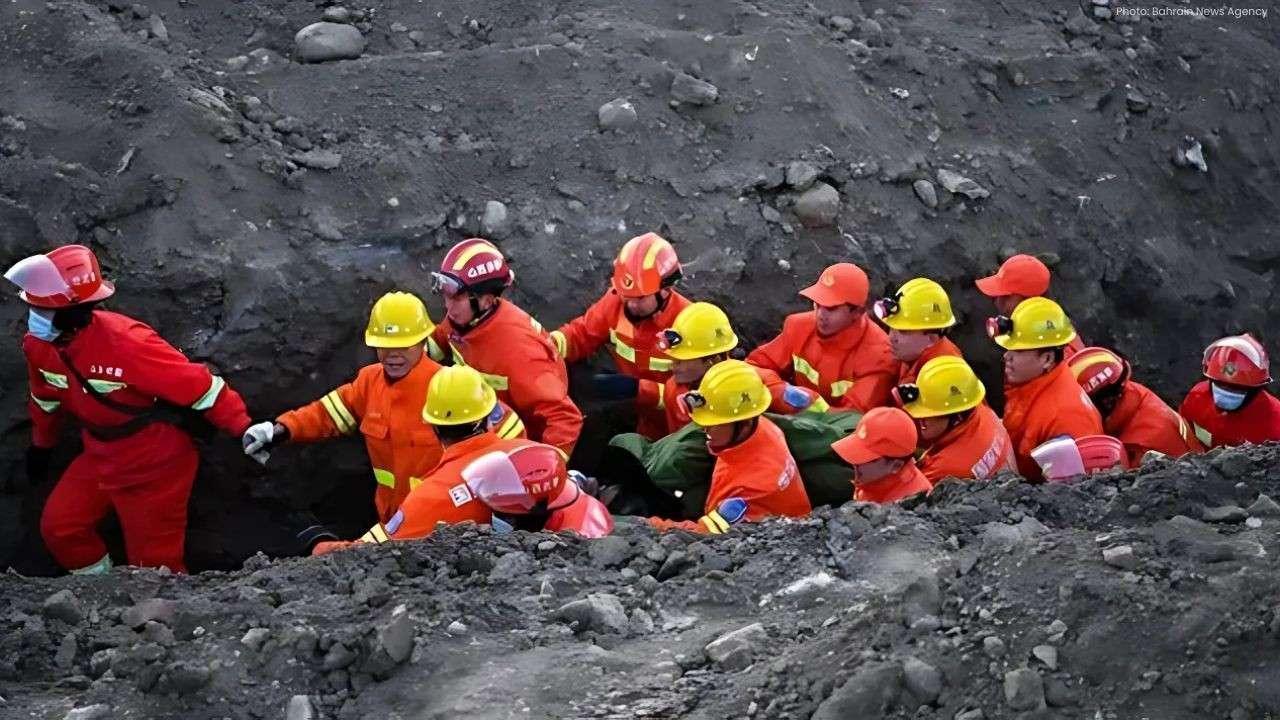
Post by : Vansh Kumar
Economic crises are inevitable, whether caused by global financial shocks, natural disasters, pandemics, or geopolitical tensions. However, history has shown that economies are remarkably resilient, capable of bouncing back stronger when lessons are learned and strategies are implemented effectively. Understanding the dynamics of recovery is essential for policymakers, businesses, and investors aiming to foster a resilient economy.
Economic crises disrupt markets, erode investor confidence, and often lead to job losses and reduced consumer spending. A crisis can manifest in various forms, including recessions, financial collapses, or debt crises. However, they also present opportunities for reform and innovation.
During crises, fundamental weaknesses in policy, infrastructure, or financial systems often become apparent. Governments and institutions that recognize these gaps and act decisively are better positioned to stimulate recovery. Moreover, businesses that adapt quickly to changing circumstances can maintain operations, protect employees, and capture market share in the post-crisis environment.
Effective policies are critical for guiding an economy from crisis to comeback. Fiscal measures such as stimulus packages, tax incentives, and social welfare programs can inject liquidity into markets and boost consumer confidence. Monetary policies, including interest rate adjustments and quantitative easing, help stabilize financial systems and encourage investment.
Policymakers must also focus on long-term strategies, such as strengthening regulatory frameworks, investing in infrastructure, and supporting innovation. Policies that encourage entrepreneurship and digital adoption can enhance productivity and ensure the economy emerges from crises with stronger foundations.
Technology plays a pivotal role in building a resilient economy. Digital tools, automation, and artificial intelligence (AI) enhance operational efficiency, reduce costs, and enable faster decision-making. During crises, technology allows businesses to maintain continuity, adapt to remote operations, and respond to evolving market demands.
For example, e-commerce platforms and digital payment systems provided essential support during the COVID-19 pandemic, ensuring that commerce continued despite lockdowns. AI and data analytics enabled governments and businesses to monitor trends, predict outcomes, and implement proactive measures, demonstrating the power of technology in economic resilience.
Examining how global markets respond to crises offers valuable insights. Countries with diversified economies, robust financial systems, and effective policy frameworks tend to recover faster. Trade relationships and international cooperation also play significant roles in stabilizing markets and fostering growth.
Emerging markets, despite often facing greater vulnerabilities, have demonstrated remarkable adaptability. Investments in digital infrastructure, renewable energy, and financial inclusion have enabled these markets to recover more quickly from economic shocks, highlighting the importance of resilience-oriented strategies.
Businesses are at the forefront of economic recovery. Companies that prioritize innovation, workforce flexibility, and digital adoption are better positioned to survive crises and thrive afterward. Diversification of products, markets, and supply chains reduces vulnerability to shocks, while investments in technology and employee training enhance adaptability.
Furthermore, businesses that focus on sustainability and corporate social responsibility can strengthen their brand reputation, attract loyal customers, and maintain stakeholder trust during challenging times. Resilient companies contribute not only to their own recovery but also to the broader stability of the economy.
A resilient economy depends on the inclusion of all stakeholders. Financial inclusion ensures that individuals and small businesses have access to credit, savings, and investment opportunities, which are crucial for stability during crises. Digital banking, microfinance, and fintech solutions have expanded access to financial services, enabling communities to participate in recovery and wealth creation.
Inclusive economic policies help reduce inequality, support small enterprises, and create a more stable financial ecosystem. By empowering underserved populations, economies can enhance social cohesion and resilience, ensuring that recovery benefits are widespread.
Innovation and entrepreneurship drive growth and recovery. Startups and small businesses often act as engines of resilience, introducing new solutions, creating jobs, and stimulating market activity. Governments that support innovation through research grants, incubators, and favorable policies create environments where entrepreneurship can flourish, accelerating post-crisis recovery.
Technology-driven innovations, particularly in sectors like healthcare, logistics, and renewable energy, can address challenges exposed during crises. By fostering a culture of innovation, economies not only recover but emerge stronger and more competitive.
History offers numerous lessons for building a resilient economy. The global financial crisis of 2008 highlighted the importance of regulatory oversight, risk management, and diversification. Economies that implemented stimulus measures and reforms recovered more quickly and sustainably.
Similarly, the COVID-19 pandemic underscored the need for digital infrastructure, supply chain resilience, and public-private collaboration. Countries that invested in healthcare, technology, and social protection measures were able to mitigate the economic impact and accelerate recovery.
Sustainability is integral to resilience. Economies that integrate environmental, social, and governance (ESG) principles are better equipped to withstand shocks and maintain long-term growth. Renewable energy, green infrastructure, and sustainable business practices reduce vulnerability to resource scarcity and climate-related disruptions.
Technology enhances sustainability by enabling smarter resource management, energy efficiency, and data-driven decision-making. By combining sustainable practices with innovation, economies can secure prosperity while safeguarding future generations.
Building a resilient economy requires proactive planning, investment in technology, and flexible policies. Governments, businesses, and communities must anticipate potential risks, develop contingency plans, and foster innovation. Education and workforce development are critical, ensuring that individuals can adapt to changing economic landscapes and contribute to recovery.
Global cooperation and knowledge sharing further enhance resilience. By learning from past crises and adopting best practices, economies can strengthen their capacity to respond to future shocks and maintain stability in an increasingly interconnected world.
The content in this article is intended for informational and educational purposes only. While every effort has been made to ensure accuracy, economic conditions, market trends, and financial developments are constantly evolving. Readers are encouraged to conduct their own research and consult professional advisors before making financial, investment, or business decisions. GCC news network is not responsible for any outcomes resulting from the use of this content.
#trending #latest #EconomicRecovery #ResilientEconomy #CrisisToComeback #FinancialStability #GlobalEconomy #EconomicGrowth #RecoveryStrategies #BusinessResilience #EconomicLessons #MarketRecovery #GCCNews #GCCUpdates #GCCTech #GCCInnovation #ArabWorldNews #GCCTrends #DigitalGCC #GCCBusiness #GCCFuture #GCCTechnology #GCCInsights










NMDC Group And ADNOC L&S Sign Three-Year Deal For Offshore Work
NMDC Group and ADNOC Logistics & Services sign a three-year deal to deliver maritime services for of

Six Miners Trapped After Earthquake Hits Coal Mine In China
A mining-related earthquake struck a coal mine in Heilongjiang, China, trapping six miners undergrou

Train Collides With Bus In Mexico Killing 10 And Injuring Many
At least 10 dead and 41 injured after a train hit a bus at a rail crossing in Mexico. Authorities co

UAE Olympic Football Team Qualifies For AFC U-23 Asian Cup Finals
UAE Olympic football team qualifies for AFC U-23 Asian Cup finals in Saudi Arabia despite 3-2 loss t

Apple Launches iPhone Air With Thinnest Design & Pro Performance
Apple unveils the new iPhone Air, its thinnest model with pro performance, multiple colors, large st

Al Wakrah Wins French Arabian Breeders’ Challenge Sprint Again
Al Wakrah, trained by Jean de Mieulle, wins French Arabian Breeders’ Challenge Sprint in France, mar